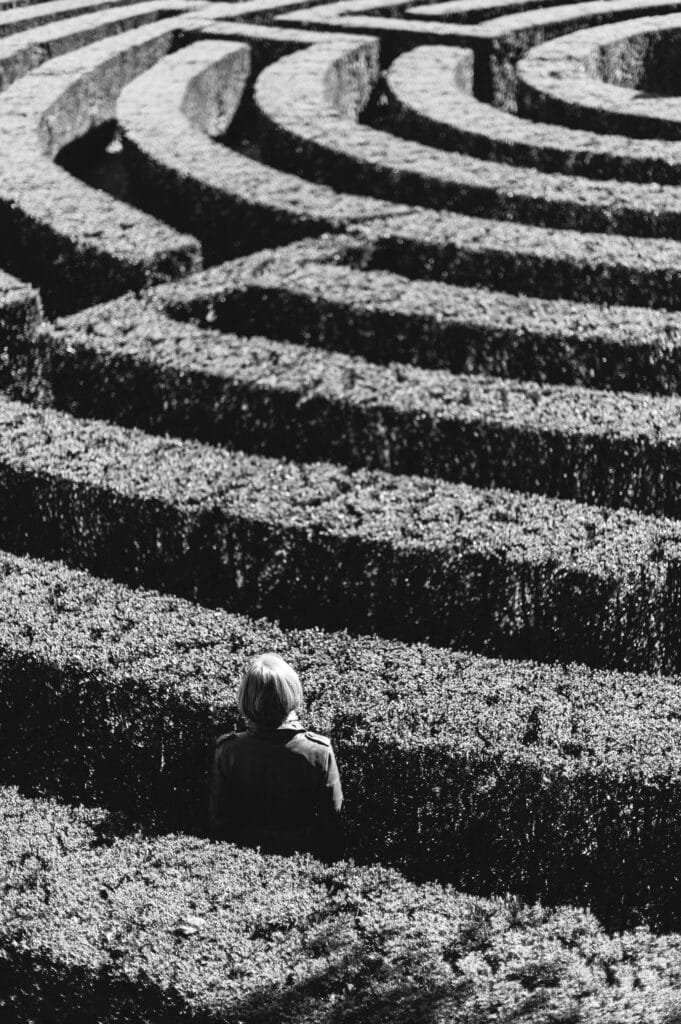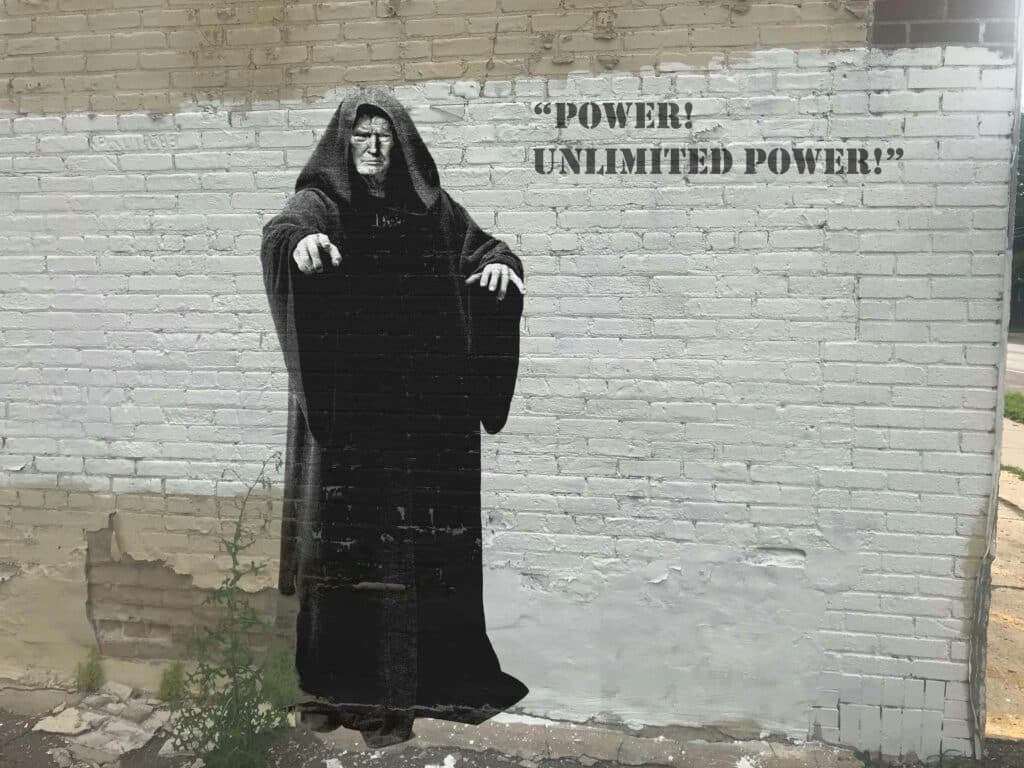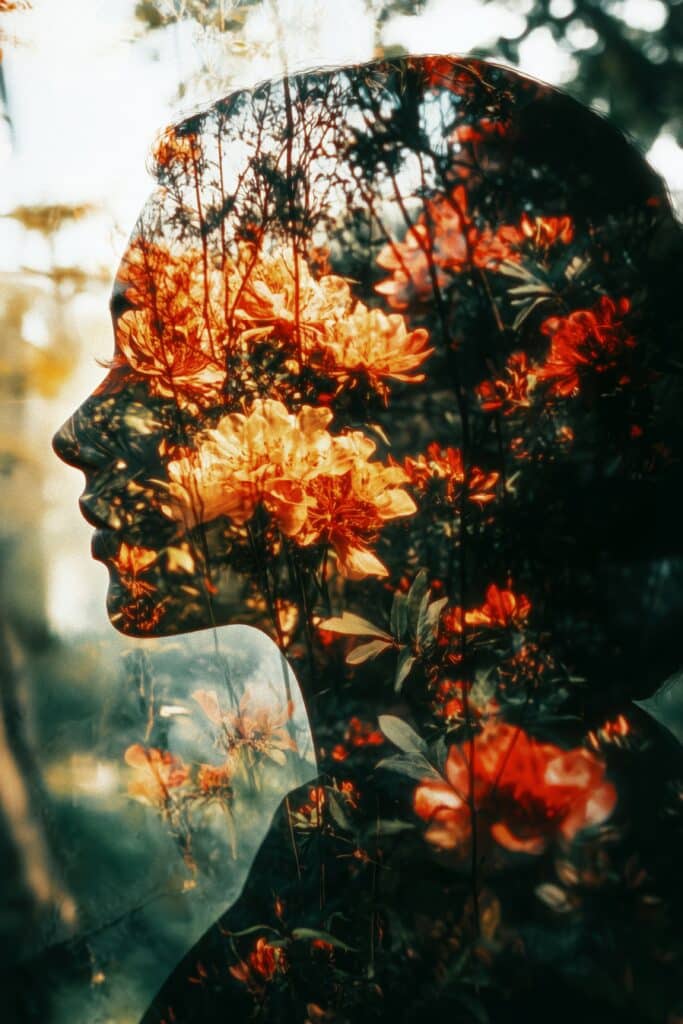Bringing the Dark Mother Into the Light

Our world has yet to fully acknowledge the archetype of the dark mother. As we bring her out into the light of our awareness, we free ourselves to become authentic and to show up powerfully in our lives and in the world.
Psychoanalyst, Carl G. Jung described archetypes as universal energy inherent in the human psyche. All archetypes have both a positive and a negative pole. If one is being expressed, the other exists as potential. In terms of the mother archetype, our society only addresses the positive pole–the angelic, all-knowing, always-loving mother.
We can’t have the light mother without the dark mother. The mother archetype contains both.
In the western world, the dark mother has become taboo–“dark,” meaning the capacity for mothers to frustrate, neglect or harm their children. Women are expected to deny their capacity for darkness and children are expected to remain silent about any negative experiences with their mothers. Anger at mother that cannot be expressed openly and processed safely will go underground and be projected onto other women, turned inward towards oneself or be projected onto the earth.
“Whatever is rejected from the self, appears in the world as an event.” ― C.G. Jung
We need to address this split within the collective human psyche, which starts within ourselves as women. We can’t be fully empowered in our capacity for light if we have not fully acknowledged our capacity for the dark. It can become a negative spiral–we deny our negative feelings, and we project them onto others in dysfunctional ways, which can create more shame. Our negative emotions are natural and part of our power. They are integral to the human experience. If we deny them, we cut ourselves off from our innate wholeness.
Children have a developmental need to idealize their mothers. But as adults we must recognize that mothers are human beings–with the capacity for good AND bad.
Society puts enormous pressure on mothers to not only look fabulous, make all the right decisions, have a successful career and all without complaining or straining. We have to acknowledge women are human, complex beings with the ability to have the full range of emotions and experiences. By acknowledging that, there would be less pressure to make mothers into caricatures, reducing them to functional, idealized roles, rather than real people.
“How can I be substantial if I do not cast a shadow? I must have a dark side also If I am to be whole”― C.G. Jung
Acknowledging our capacity for the dark actually supports women in being better mothers and happier human beings, because it takes away the pressure to lie and be inauthentic about the reality of our experiences. It frees us to be real. It allows us to be truly available to ourselves and our loved ones in authentic, balanced ways. It models self-love to our children.
Idealization is a form of dismissal
While on the surface it appears that idealization benefits mother’s and boosts their place in society, idealizing mothers actually keeps women feeling guilty and disempowered. Everyday challenges, mistakes and setbacks become sources of deep shame. We have the expectation that mothers should never be angry or jealous. Asking for help or feeling overwhelmed are seen as symptoms of failure. As mothers, we have to give ourselves what society cannot give us–radical permission to love ourselves completely–mistakes and all.
“The most terrifying thing is to accept oneself completely.” ― C.G. Jung
There is a payoff for the idealization: We may believe we don’t have to be accountable for our actions. It may become a cop-out, a shield against criticism. We have to forego the payoff of oppression in order to be free.
As long as women internalize the idealization and societal pressure to be perfect, their children will likely feel shame and guilt about themselves on some level. We can’t give our children what we don’t have within ourselves. As a daughter, to attempt to discuss challenges or difficult emotions with your mother may mean taking the risk of her seeing your negative feelings as a betrayal or rejection of her. Some children feel shame about admitting any negative feelings about their mothers. Many mothers quickly cut off such conversations with their children saying, “I tried the best I could.” Overall, this dynamic keeps women stuck.
The archetype of the dark mother does not go away, the energy just goes underground and comes out in dysfunctional ways. For example, as mothers, we may say something sweet to our children, yet there could be unspoken, darker messages underneath, messages like: “You owe me”, “Poor me” and “Take care of me.” When we start to believe that we are only the light mother, and deny our capacity for darkness, we become less and less authentic. We may think others are responsible to make us happy. We may not respect the boundaries of others. Our pent-up, unacknowledged darkness becomes toxic–to ourselves and others.
Acknowledging the dark mother archetype is key to acknowledging the full power of women.
The taboo of the dark mother is a symptom of the larger societal taboo on vulnerability. Society says that it is unsafe to admit our true feelings, especially the negative ones like anger, sadness, disappointment, jealousy, etc. We have to admit to ourselves the full scope of our own feelings and learn to feel attuned to both the creator and destroyer within.
Owning the dark mother that lives in us is a critical step in embracing our humanity. And the more we embrace our humanity, the more we fully embody our divinity. They go hand-in-hand.
Without the pressure to be perfect and to feel shame for our human mistakes, conflict is not seen as the end of the world, it’s seen as an opportunity to grow! An opportunity to know ourselves and others better, more intimately, more truly, more respectfully. We can learn to see and consequently love and be loved more accurately–for who we really are–light and dark. When we hold the balance of the opposites, we embody our innate wholeness; our original, unique selves. Conflict and negative emotions can be seen as doorways to greater intimacy and aliveness. These fruits can only flourish on the ground of radical self-honesty. The more we allow ourselves to be human and imperfect, to explore our inner selves without shame, the more healed and integrated our world will become. It all starts with us.
“The privilege of a lifetime is to become who you truly are.”― C.G. Jung
Art Credit: Courtesy of Unsplash




